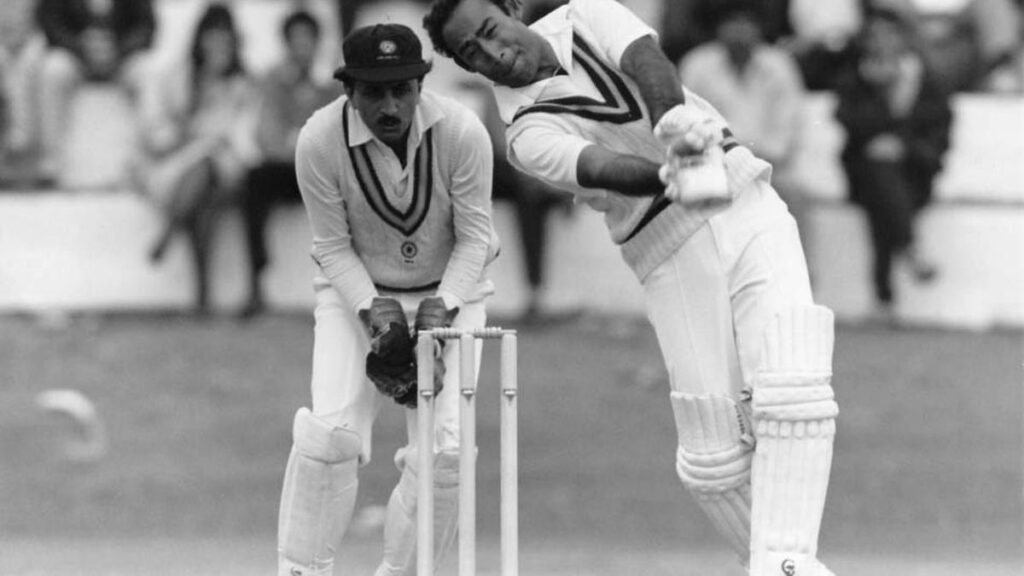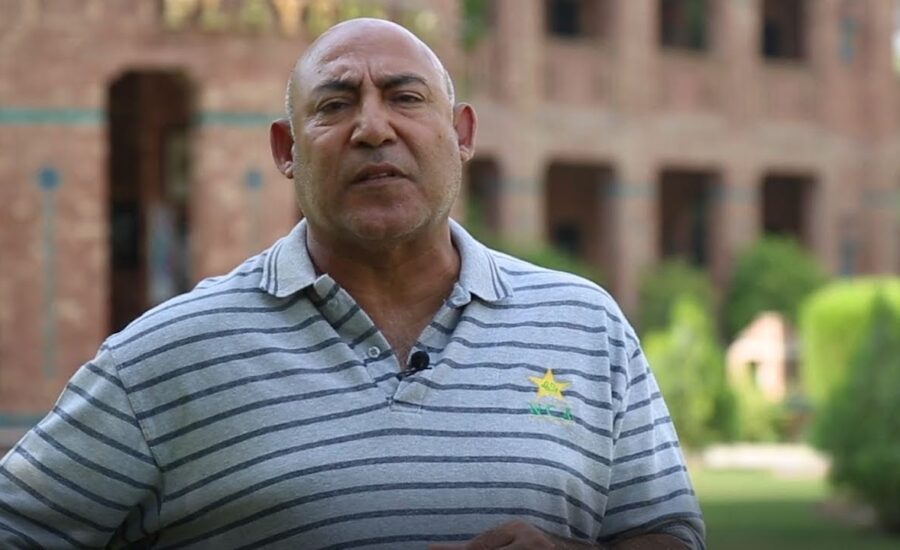Mudassar Nazar, the former opener for Pakistan, disclosed on Sunday that his team was under tremendous pressure in the early 1990s since a loss, particularly to India, would undoubtedly lead to rumors of match-fixing and foul play among supporters back home.
The Pakistani team was among the most talented in the 1990s. It peaked with the 1992 World Cup victory, which ended ten years of success in one-day and Test formats.
But talk of match-fixing also dominated those days, and Mudassar believes the players grew “increasingly fearful” of what the public would think of them.
“I believe that when it came to talent, Pakistan’s squad in the 1990s was on par with Australia’s. However, there was a pure dread of losing the match, and I’m going to get a little controversial here,” Mudassar stated during the Cricket Predicta Conclave’s last speech.
The dispute is at the root of match-fixing. The Pakistani squad was under a lot of pressure since, each time they lost, many assumed the game was rigged or questionable. No one was ready to acknowledge that a superior squad had defeated them.”
Mudassar, who was 68 years old, represented Pakistan from 1976 to 1989. In 76 Test matches and 122 One-Day Internationals, he amassed 6767 runs and claimed 177 wickets.
“So, at some stage in the early 90s, I was part of that team which was fearful of losing the game, and that was entirely due to match fixing or fear of people believing the match was fixed,” he said.
A defeat to India will exacerbate matters due to the fierce competition between the two adjacent countries.
“You also include the element of competing against India in that equation. No Indian or Pakistani wanted to lose the match. We saw that in Sharjah, which is why the India vs Pakistan match was so significant.
“That wasn’t the case with cricket, but it probably was with people in general. There was a great deal of pressure. Sadly, the Pakistani team suffered as a result of the match-fixing scandal, Mudassar stated.
The Pakistan Cricket Board (PCB) established a judicial panel led by Justice Malik Qayyum to investigate the allegations of fixing in the mid-1990s.
After an 18-month investigation, the commission recommended a life sentence for former captain Salim Malik for fixing and pacer Ata-ur-Rehman for perjury.
Additionally, it suggested that certain additional participants be fined for refusing to assist the commission in its investigation.
Mudassar spoke with former coach Dav Whatmore and Pakistani star Zaheer Abbas for the centenary edition of Cricket Predicta, the biggest live stats-based show in Asia.
Few things have rocked cricket as much as the match-fixing scandal in a sport where emotions are constantly high and passions run deep. In Pakistan, in particular, the problem of match-fixing not only ruined lives but also permanently harmed the country’s cricketing future. Mudassar Nazar, a renowned cricket player and coach for Pakistan, has been among the most vocal about the effects of this dispute. However, what makes Mudassar Nazar unique, and why does his viewpoint matter? Now, let’s get started.

Mudassar Nazar: Who is he?
Mudassar Nazar is more than simply another name in Pakistani cricket history. His work as a player, coach, and administrator has solidified his legacy, and his voice is highly influential when it comes to the problems that have beset the game.
Childhood and Career in Cricket
Mudassar Nazar, a Pakistani cricket player born in Lahore, was destined for greatness. He continued the legacy of his father, Nazar Mohammad, who became the first Pakistani cricketer to make a century in a Test match. In 1976, he made his debut for Pakistan as an all-round player renowned for his tenacity and determination. He was a dependable medium-pace bowler and middle-order batsman who made a substantial career contribution to Pakistan’s triumphs.
His Part in the development of cricket in Pakistan
Following his retirement from the professional game, Mudassar assumed responsibility for advancing cricket in Pakistan. Working with up-and-coming talent, he fostered a new generation of cricketers who would represent the country internationally as a coach and administrator.
Administrative and Coaching Support
Throughout his many years as a coach, Mudassar held a variety of positions with the Pakistan Cricket Board (PCB). Notwithstanding the obstacles, he consistently worked to keep Pakistan cricket progressing by coaching the national team and assisting in the establishment of youth academies around the nation.
The Pakistani Scandal of Match-Fixing
Although match-fixing is not a new occurrence in sports, cricket has been particularly hard hit by its effects. Pakistan’s faith in its cricketing heroes was destroyed by the incident involving elite players.
An Overview of Pakistan’s Biggest Match-Fixing Scandals
These scandals, the most notorious of which broke out in the late 1990s and early 2000s. The allegations against prominent cricket players, including Salim Malik, Muhammad Amir, and Mohammad Asif, resulted in suspensions and legal consequences. The startling disclosures damaged the sport’s reputation around the world by demonstrating just how far the rot had spread.
Principal Players in the Scandal
Prominent athletes, both formerly captains and emerging potential, were implicated in the controversy. Their engagement let down millions of supporters, and the nation’s and the team’s morale suffered as a result of the misplaced trust.
The Effect on Cricket in Pakistan
The controversy hampered Pakistan’s advance on the international front. The group that was formerly regarded as a dominant force in international cricket faded into obscurity. Internal rifts brought forth by the scandals also contributed to team discord and a lack of concentration on the pitch.
Mudassar Nazar’s Opinion on Fixing Matches
His Declarations in Public
Mudassar Nazar has frequently discussed how match-fixing damages Pakistani cricket. He claims that in addition to ruining individual careers, the match-fixing scandal has hurt the nation’s reputation in the international cricket community.
The Cost to Nazar Personally
Nazar has talked about how tough it was for him to watch players he developed become involved in unethical behavior in his capacity as a coach and administrator. The controversy also impacted his love for cricket, as he witnessed one of the lowest points in Pakistani history for the game.
How Nazar’s Viewpoint Reflects More Wide-Reaching Issues in Cricket
Mudassar Nazar’s worries about match-fixing are similar to the widespread concern about corruption in cricket. He thinks that more drastic action is necessary to prevent future crises and rebuild public confidence in sports.
What Could Have Been: Pakistan Cricket’s Unrealised Potential
How Match-Fixing Stunted Pakistan’s Growth
In the 1990s, Pakistan was on the cusp of becoming a global force in cricket. That progress was, however, put on hold by the match-fixing incident, which left many to question what the squad could have accomplished in the absence of corruption’s negative effects and distractions.
Comparing the Same Era with Other Countries
During this time, nations like Australia and India advanced rapidly by emphasizing the development of solid teams and upholding moral principles. Pakistan, on the other hand, had to deal with the aftermath of its controversies, which caused them to slip even further behind the leading cricketing nations.
Mudassar Nazar’s Methods for Keeping Cricket Clean
Pushing for More Powerful Regulatory Authorities
Mudassar Nazar has demanded stronger anti-corruption measures from the national cricket boards and the International Cricket Council (ICC). He feels that tougher sanctions for individuals engaged in doping and more stringent control are the only ways to clean up the sport.
Stressing Accountability and Transparency
Nazar believes that openness is essential in cricket operations. If all financial and operational aspects of the game were made transparent, corrupt practices would find it harder to thrive.
The Function of Mentoring in the Prevention of Corruption
Mudassar also supports initiatives that provide young cricket players with mentors. He thinks that mentoring younger players and instilling strong principles can avoid issues in the future.
In summary
Few people know Pakistan’s losses from the match-fixing scandal better than Mudassar Nazar. His observations about the psychological and emotional harm that corruption inflicted serve as a potent reminder of how crucial it is to uphold the integrity of the sport. The lessons from this dismal episode will be applicable for years to come, even though Pakistani cricket is only just beginning to recover.
